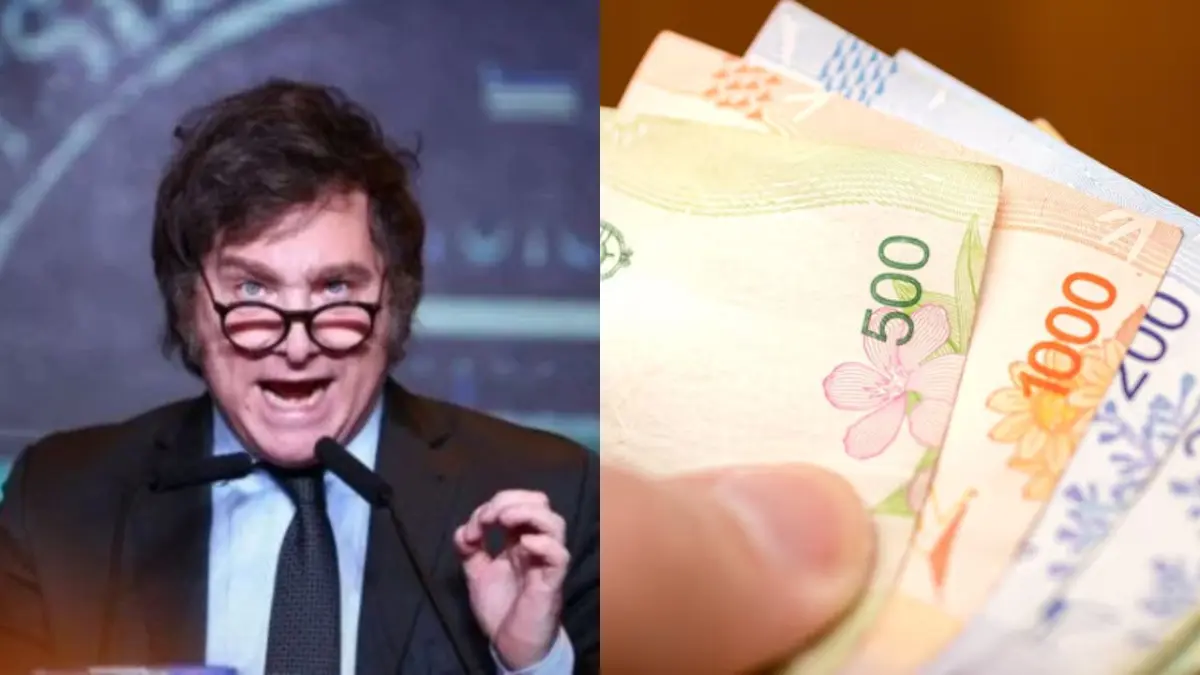
A controversial turn has occurred in the government of Javier Milei where they have declared that the minimum wage is a mistake that hinders the free functioning of the labor market.
This statement has generated a heated debate in Argentina, where the inflation and the economic crisis have left many workers struggling to make ends meet.
(Read also: Right, happy with Trump’s victory in the United States; Milei can’t fit the joy
)
According to the presidential spokesperson, Manuel Adornithe existence of a minimum wage prevents companies from hiring people willing to work for less, which, according to him, limits the flexibility of the labor market.
Since Milei became president, the minimum wage has increased by 80%but year-on-year inflation close to 120% has significantly eroded workers’ purchasing power. With a minimum wage of 279,000 pesos, equivalent to approximately 230 dollars (more or less $1,011,513 COP), many workers still cannot cover the basic basketwhich leaves them in a situation of economic vulnerability.
(Read also: The changes that Javier Milei is preparing in Argentina: he seeks to reduce the age for charging crimes)
The situation has led unions to harshly criticize the government, accusing it of favoring business interests at the expense of workers. This Thursday, the Executive hid behind the lack of agreement between the parties to increase by decree the minimum wage by 3%, when they requested an improvement close to 70%.
iStock
The impact of the minimum wage on the Argentine economy
The minimum wage in Argentina has been a topic of debate for decades. Proponents argue that it is a crucial tool to ensure a basic standard of living for workers, while detractors, such as the Milei government, argue that it imposes unnecessary rigidities on the labor market. According to Adornithe government’s goal is to eliminate the minimum wage in the future, allowing the market to determine wages more efficiently.
The elimination of the minimum wage could have significant consequences for the Argentine economy. On the one hand, it could increase the flexibility of the labor market, allowing companies to adjust wages according to supply and demand. However, it could also lead to greater job insecuritywith workers accepting lower wages due to a lack of alternatives. This situation could exacerbate economic inequality and increase povertyespecially in a context of high inflation and economic crisis.
Reactions and future perspectives in the Argentine economy
Reactions to the Milei government’s stance have been mixed. Trade unions and workers’ organizations have expressed concern about the negative impact that the elimination of the minimum wage could have on the most vulnerable workers.

Modern Buenos Aires
The General Confederation of Labor (CGT) has accused the government of acting in favor of business interests and against workers. On the other hand, some economists and businessmen support the measure, arguing that it could stimulate job creation and improve the competitiveness of the Argentine economy.
This issue of the minimum wage in Argentina has been the subject of multiple adjustments in recent years. In December 2024, it was set at 279,718 pesos per month (equivalent to $279) for full-time workers and 1,399 pesos per hour. This amount will increase to 286,711 pesos (about $286) in January 2025, 292,446 pesos in February (about $292) and 296,832 pesos in March (296 dollars).
(Read also: Foreigners in Argentina would have to pay for health and education due to changes by the Milei government)
Despite these increases, the General Confederation of Labor (CGT) has pointed out that the minimum wage has lost more than 70% of its purchasing power in recent years due to the inflation. In addition, it affects approximately 6 million formal workers and has an impact on informal workers and in various social programs that are governed by this amount.

Getty Images
The lack of consensus between the government, unions and business chambers has led the government to make unilateral decisions on increases in the minimum wage, which has generated criticism and tensions in the workplace.
Source: https://www.noticiascaracol.com/mundo/eliminar-el-salario-minimo-la-propuesta-del-gobierno-de-milei-que-divide-a-argentina-rg10


